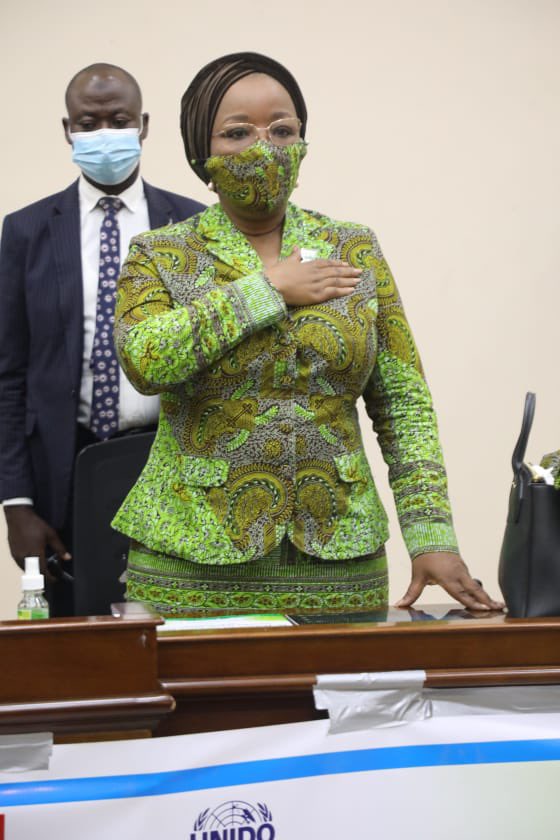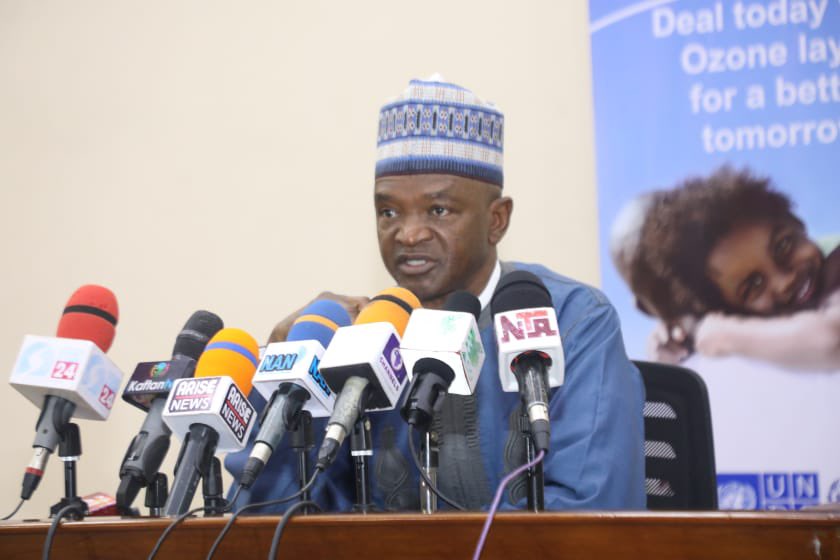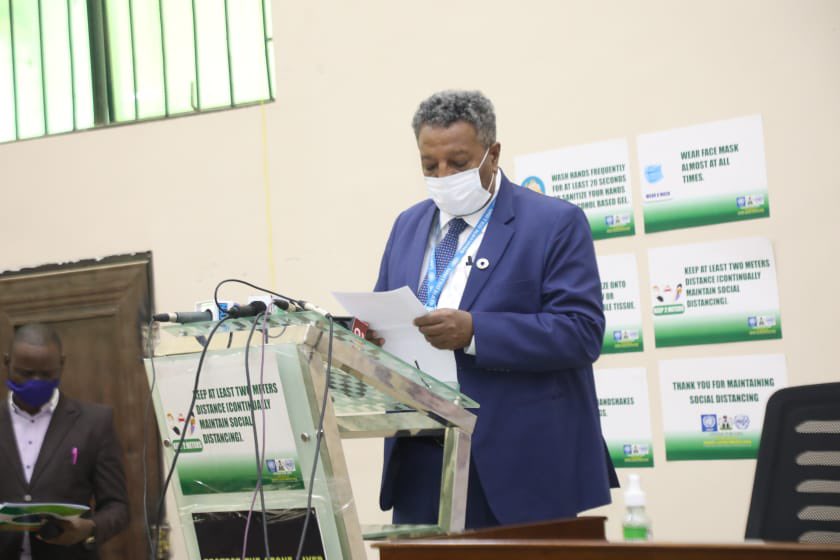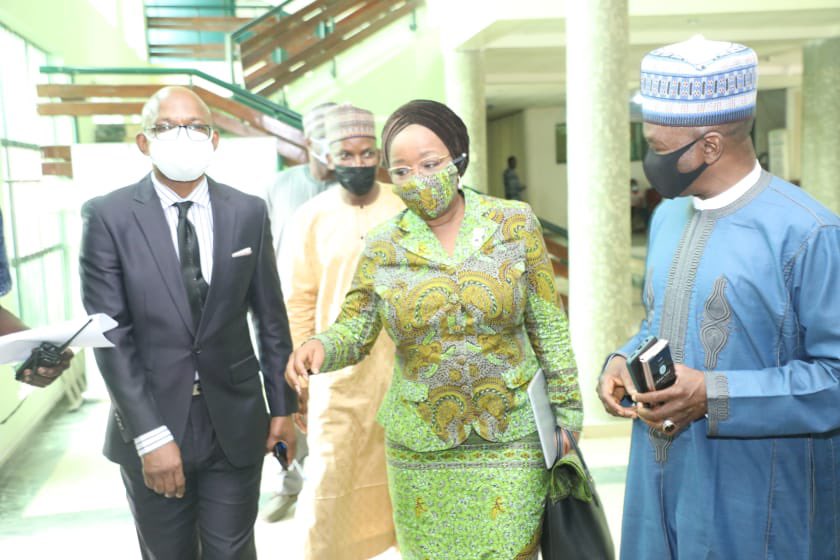
The Ministry, with support from our development partners is operationalizing and cascading the policies to the sub-nationals. 



With the support of the Government of Japan and in collaboration with UNIDO, the Ministry would be implementing the project “Promoting Sustainable Plastic Value Chain” through Circular Economy practices in Lagos and the FCT.
This project would promote the integration of Circular Economy principles & practices into plastic waste management,strengthen plastic value chains, & demonstrate the benefits of adopting circular economy practices &resource efficient production of plastic value chains in Nigeria
In 2021, Nigeria became a member Global Plastic Action Partnership (GPAP). The GPAP provides a platform for Government, Private Sector, Regional Bodies, International Organizations, Civil society Organizations, etc., to work together to champion a shift towards a new plastics
economy by addressing the root causes of plastic pollution from production to consumption and re-use. The GPAP is being domesticated into Nigeria’s National Plastic Action Partnership (NPAP) to support Nigeria’s Circular Economy initiatives.
Marine Pollution; In tackling plastic pollution in our oceans and waterbodies, the Ministry in collaboration with the World Bank is implementing the ProBlue project: 

Reducing Marine Plastic Pollution and Creating Plastics Recycling Markets in Lagos State with the objective to develop an improved knowledge base and increased capacity for Lagos State to reduce Marine Plastic Pollution by promoting Sustainable Plastic Waste Management.
This project will be replicated in all the coastal states of the country after the pilot in Lagos
CONSERVATION, OCEAN, AFFORESTATION, DESERTIFICATION AND WILDLIFE
Biodiversity
Several environmental challenges have led to the loss of biodiversity and threatens our existence. The drivers of these include all forms of habitat change, overexploitation, pollution, invasive alien species, and climate change.
Several environmental challenges have led to the loss of biodiversity and threatens our existence. The drivers of these include all forms of habitat change, overexploitation, pollution, invasive alien species, and climate change.
This alarming rate of overexploitation of natural resources calls for urgent, increased and proactive actions to reverse the trends.
Nigeria is endowed with enormous biodiversity which plays vital and diverse roles in our economy, ecology and social lives.
The Ministry has taken several steps in combatting biodiversity loss through
the Department of Forestry, the Department of Desertification, Land Degradation and Drought Management, and our Agencies, Forest Research Institute of Nigeria (FRIN), National Park Services (NPS) and National Agency for Great Green Wall (NAGGW);
1. Domestication of the Global Biodiversity Strategy and Action Plan - National Biodiversity Strategy and Action Plan 2016 – 2020
2. Sustainable Management of Selected Critical Ecosystems which is ongoing across the country including reforestation, community livelihoods and economic empowerment, e.g., Wetlands Conservation Projects in Hadejia-Nguru wetlands.
3. National Forest Policy approved by FEC July 2020 is being implemented to address sustainable management of our forests.
4. National Afforestation Programme is ongoing across the ecological zones of the country and we are achieving restoration of degraded forest reserves and other landscapes nationwide.
A National Forestry Trust Fund has been established to address the inadequacy of funding militating against forestry development in the country.
5. Nigeria will soon be signing the Cooperation Framework Agreement on Transboundary Ecosystem Conservation and Sustainable Management of Forestry and Wildlife Resources with Cameroon.
NAGGW
The Pan African Great Green Wall (GGW) reflects the concern in Africa to address the issue of land degradation, desertification, and biodiversity loss in the context of climate change.
The Pan African Great Green Wall (GGW) reflects the concern in Africa to address the issue of land degradation, desertification, and biodiversity loss in the context of climate change.
The Initiative is a mechanism for the conservation and protection of natural resources with a view to achieving sustainable development and particularly alleviating poverty in the Saharan and the Sahel Region of Africa by creating a Greenbelt 7,775km...
..long from Senegal to Djibouti to combat desertification.
In December 2021, the Summit of Head of States and Governments elected Nigeria as President of the PAGGW for tenure of 2 years.
In December 2021, the Summit of Head of States and Governments elected Nigeria as President of the PAGGW for tenure of 2 years.
Nigeria signed the GGW Convention in 2010 and commenced its implementation in 2013 in the 11 frontline states of Adamawa, Borno, Bauchi, Gombe, Jigawa, Kano, Katsina Kebbi Sokoto Yobe and Zamfara.
Some key components of this program are:
● Ecological restoration and rehabilitation to enhance the livelihoods of the affected communities and strengthen their resilience to climate change.
● Ecological restoration and rehabilitation to enhance the livelihoods of the affected communities and strengthen their resilience to climate change.
• • •
Missing some Tweet in this thread? You can try to
force a refresh





















